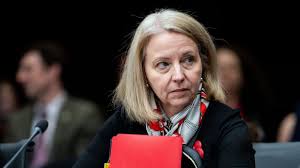WASHINGTON: Top Canadian officials have reportedly admitted to leaking details about India’s foreign interference to The Washington Post, but these specifics were not shared with Canadians, The Globe and Mail reported. This news comes amid ongoing tensions between Canada and India, particularly after Prime Minister Justin Trudeau accused the Indian government of involvement in the killing of a Canadian Sikh activist.
According to the report, PM Justin Trudeau’s national security and intelligence adviser has confirmed she leaked sensitive information about the Indian government’s alleged role in murder, extortion and coercion to The Washington Post that was not shared with the Canadian public.
Nathalie Drouin told the Standing Committee on Public Safety and National Security on Tuesday that she did not require Trudeau’s authorisation for the leak and insisted no classified intelligence was provided to the US publication the day before Ottawa expelled six Indian diplomats on October 13.
On October 14, Royal Canadian Mounted Police (RCMP) Commissioner Mike Duheme stated that India was involved in the killing of three people, but he only identified the slaying of Nijjar.
During his news conference, Commissioner Duheme said, “Eight people have been charged with murder and 22 with extortion. Four Indian nationals have been charged in the killing of Nijjar outside a Sikh temple.”
Drouin said leaking of sensitive information was “part of a communications strategy” that she and Deputy Foreign Minister David Morrison came up with to ensure that a major US publication got Canada’s side of its continuing the foreign interference dispute with India.
Further, Drouin also affirmed that “the communications strategy was seen by the Prime Minister’s Office”.
“We provided non-classified information on the actions we had taken to cooperate with India and explain how the evidence showed links to the government of India conducting illegal activities against Canadians, including threats to their lives,” Drouin said.
Drouin also denied allegations that she released classified information to the Washington Post, and stated that “she provided a similar briefing to federal opposition leaders as she did with the Post”. Her role in the alleged information leak came to light after The Globe and Mail published a report.
However, Drouin’s admission about the leak was met with criticism from the opposition camp. Conservative party MP Raquel Dancho said, “Why the Prime Minister, his Foreign Affairs and Public Safety ministers, and the RCMP didn’t share this information with the public when the six Indian diplomats were expelled.”
“In fact, Canadians wouldn’t know unless they were able to read The Washington Post. I just find it quite unfair to the Canadian public that details were released in advance to The Washington Post but not provided to Canada,” she added.
In response to questions from Dancho, the RCMP Commissioner Mike Duheme said he didn’t tell the public about what The Washington Post reported because the information could affect continuing criminal investigations.
“It is information as part of an investigation that normally we like to keep within but sometimes we do release some information,” Commissioner Duheme said. “I didn’t think at that point that it was relevant, that specific information, and again, I wasn’t part of the conversation with The Washington Post.” As The Globe reported, the RCMP went to the government in late August to ask for an all-out effort to convince India to end its hostile foreign interference campaign.
Drouin said the RCMP asked to travel to New Delhi on October 8 to present evidence but India “used an administrative technicality to block this meeting”. The RCMP then travelled to Washington on October 10, but “while an India officer confirmed the meeting, they never showed up.” Earlier this month, India recalled six diplomats from Canada after they were declared “persons of interest” by the Canadian government, in the investigation into the killing of Khalistani terrorist Hardeep Singh Nijjar.
Nijjar was shot and killed outside a Gurdwara in Surrey in June 2023. He held Canadian citizenship, and was designated a terrorist by the National Investigation Agency in 2020.
The ties between India and Canada soured after Prime Minister Justin Trudeau alleged in the Canadian Parliament last year that he had “credible allegations” of India’s hand in the killing of Nijjar.
India has denied all the allegations, calling them “absurd” and “motivated”, and has accused Canada of giving space to extremist and anti-India elements in their country.
Meanwhile, the National Investigation Agency is currently investigating six cases involving designated terrorist Gurpatwant Singh Pannu.
Pannun is an India-designated terrorist who holds American and Canadian citizenship.


